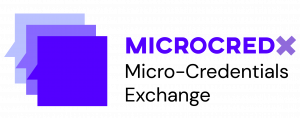- Code guidelines and code quality and reviewing.
- Test levels, planning and evaluation, Continuous integration, Operation and maintenance.
- Know the methods and supporting technologies of the respective project phases.
- Select and apply appropriate methods for specific problems.
Archives
- Design and implement a computer-aided solution.
- Make corrective adjustments to proposed solutions.
- Combine interdisciplinary skills such as the software development process with project management techniques and consider time and cost factors during the project.
- Analyse a given problem.
- Use tools for collaboration and problem solving.
- Competitively evaluate proposed solutions to a given problem and justify their designs and solutions.
- Competitively evaluate, select and critically reflect on proposed solutions to a given problem.
- Discuss problem analyses and propose solutions as well as the interrelationships between the individual phases with specialist representatives.
- Present their designs and solutions orally and in writing.
- Critically examine different points of view in discussions.
- Build and develop teams.
- Familiarise themselves with tools independently.
- Recognize their own strengths and weaknesses in the project and improve themselves.
- Deal with conflicts and resolve them constructively.
- Pass on and support skills.
- Give each other constructive feedback.
- Work effectively in a team on complex projects.
- Describe and calculate the process of an international distribution of goods.
- Assess and evaluate the special cultural aspects of international markets
- Work on important points of contract drafting in the company and assess the fundamental significance of European and international regulations at national level.
- understand the function of international markets.
- have knowledge of the current issues in international economics, an appreciation of how economists address international economic issues and be familiar with current research issues in international economics.
- Understand the basics of AI and its current regulation.
- Analyze AI from different areas of the law.
- Critically discuss the future possibilities of regulation of AI and its practical application.
- Interpret the law
- Comply with legal regulations.
- Offer legal advice.
- Know the principles of Artificial Intelligence.
- Use the most important generative AI tools to support learning design.
- Use generative AI to create learning resources.
- Develop meaningful and formative assessment with the help of generative AI.
- Understand the ethical limits and challenges posed by generative AI.
Knowledge on:
- Getting to apply tinkering thinking.
- Developing creative skills in the context of the organization.
- Developing adaptability to new creative ideas.
The ability to:
- Use lateral thinking techniques to find unconventional solutions to complex problems.
- Practice and develop specific skills related to creativity, such as observation, free association, and visualization.
- Be able to adjust and adapt creative ideas to suit different contexts and requirements.
The following skills:
- Design and plan strategically, allowing the effective implementation of these innovative solutions within the organizational structure.
- Appropriately implement these creative techniques within projects and processes.
- Empower others to use this flexible and adaptive way of thinking, improving organizational resilience and effectiveness in changing environments.
Knowledge on:
- Analyzing the situations that lead to stress
- Mediating to resolve conflicts that may arise in different spheres and areas
- Achieving empathy to understand resistance to possible changes
Abilities to:
- Develop effective strategies for managing stress and emotional pressure, maintaining calm and mental clarity in challenging situations.
- Address and resolve conflicts constructively, seeking mutually beneficial solutions and promoting collaboration.
- Deeply understand the emotions and perspectives of others, even in difficult situations, and respond compassionately and understandingly.
The following skills:
- Analyze situations that generate stress, design, and plan effective strategies to manage stress and emotional pressure.
- Facilitate the resolution of conflicts by promoting the search for solutions that benefit both parties.
- Deeply understand the emotions and perspectives of others, even in difficult situations.
- Transform radically when the situation requires it.
- Think strategically with the aim of anticipating trends
- Inspire and empower others to become agents of change.
- Propose deep and significant transformations within the organization, challenging the status quo and encouraging innovation disruptive
- Develop a long-term vision and design innovative strategies to face the challenges of the future.
- Guide others to become agents of change, empowering them to lead with courage and vision in a world in constant evolution.
- Use leadership to shape change, inspiring others to adopt new ways of thinking and acting to catalyze progress and organizational reinvention.
- Use strategic thinking to anticipate trends and changes, ensuring that the organization remains relevant and competitive in time.
- Make use of the power of inspiration to foster leadership and innovation in others, modeling behaviors and practices that support personal and organizational growth.

